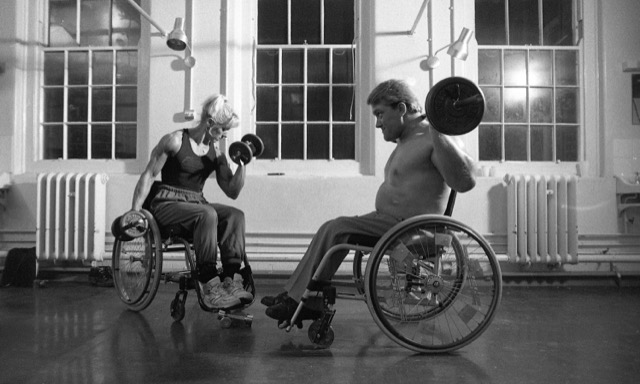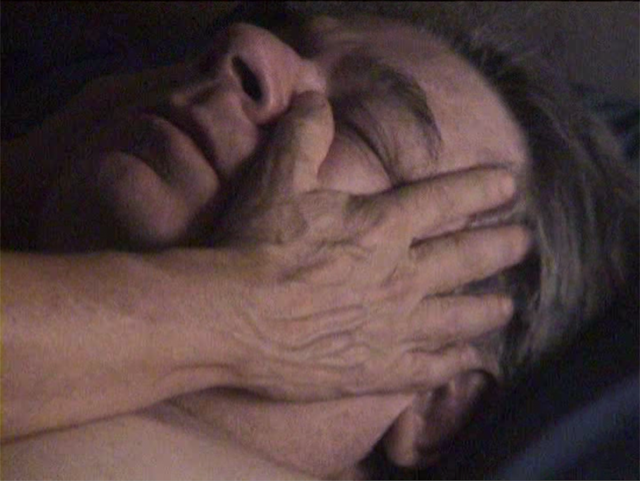On the International Day of Persons with Disabilities, the United Nations writes, “The commitment to realizing the rights of persons with disabilities is not only a matter of justice; it is an investment in a common future.” In early 2021 – in the heart of lockdown – I lead a team of researchers, artists and access professionals to invest in that common future through a series of accessible online film events that celebrated advances in disability justice and disabled creativity.

As Nicki Miles-Wildin, Associate Director of Graeae Theatre has said, “we are all pre-disabled.” Most of us will experience disability at some point in our lives, whether temporary or permanent. Globally, one in seven of us is disabled. 46% of people aged over 60 live with a disability. Disabled people are by no means a small minority, and yet the impact of COVID-19 and over a decade of austerity politics in the UK have had a disproportionately negative impact on disabled people. Anger and adaptability go hand in hand with the experience of being disabled, not because of physical impairment or mental illness, but because of a world that can and must do so much more to invest in a common future for all.
The Arts have always been a key means to amplify the voices and experience of disabled people. The artist-filmmaker Stephen Dwoskin (1939–2012) was no stranger to difficulties of living in a disabling world. He was a prolific artist and filmmaker; a key figure in experimental film and artist’s moving image who rubbed shoulders with the likes of Andy Warhol and Jonas Mekas in the US, before coming to the UK in 1964 to become the co-founder of important organisations like the London Filmmakers’ Co-Op – now known as the LUX. His work was funded by the British Film Institute and the Arts Council, and he made commissioned documentaries for UK, German and French television, as well as personal essay films reflecting on his family and autobiography.

Dwoskin was also a childhood survivor of polio, who suffered from post-polio syndrome in the later years of his life. His diaries and correspondence, now held in the University of Reading Special Collections, regularly discuss the legal battles he encountered trying to stay in his home while receiving adequate care for his needs. He was also immensely resourceful and adaptive in his creative practice: when hospitalised and in an induced coma in January 2001, he handed his digital camera over to friends and loved ones to keep filming. The resulting experimental film, Intoxicated by My Illness: Intensive Care Parts I and II, was screened at the Rotterdam International Film Festival in 2002 to the great acclaim of film critics such as Jonathan Rosenbaum.

Intoxicated was one of three films live-streamed via the LUX and the Centre for Film Aesthetics and Cultures at Reading, in the midst of COVID-related lockdowns in the first half of 2021. Screenings of Dwoskin’s disability documentary Face of Our Fear and his autobiographical film Trying To Kiss the Moon were accompanied by new captions and written audio description for d/Deaf and hard of hearing audiences, and streamed for free to audiences worldwide. Each event was supported by an incredible team of accessibility professionals, including live captioners, lip-speakers and British Sign Language interpreters.
The pandemic disproportionately affected disabled people, many of whom unnecessarily lost their lives in a tragedy that has not yet been fully acknowledged. In the midst of this tragedy I wanted to celebrate the achievements of disabled practitioners, past and present. As the lead programmer, I invited disabled speakers and allies to join me in post-screening discussions, including the photographer Robert Andy Coombes, multimedia artist p staff, who exhibited this year at the Venice Biennale, Yates Norton, curator at the Roberts Institute of Art, and long-established disability rights lawyer-campaigner David Ruebain, now Pro-Vice-Chancellor for Culture, Equality and Inclusion at the University of Sussex.
In the period of exponential expansion of digital communications during the COVID pandemic, I wanted to rethink the landscape of accessible film screenings for the times in which we are living. I wanted to build awareness of disabled creativity through the adaptive, accessible potential and international reach of digital platforms. And since the events took place, hundreds of people from all over the world have accessed the recorded post-screening discussions, which are still available via the LUX website.

The suite of events was funded in part by the University of Reading Diversity and Inclusion fund, and supported by other members of the AHRC-funded project The Legacies of Stephen Dwoskin’s Personal Cinema (2018–2022), particularly Rachel Garfield and Henry K Miller. Our three aims were to provide a series of free, accessible arts events in the heart of COVID lockdown; create a space to discuss disabled experience, with disabled people, for disabled people; and to challenge perceptions of disability through film for a wider audience. In recognition of our achievements, and the programme’s transformative potential for celebrating disabled talent, we were delighted to be finalists in the Research Engagement and Impact Awards 2022 at the University of Reading.
There is a place both for remembering disabled lives lost, and for celebrating the extraordinary tenacity and innovation of disabled creators. This is what I want to remember on this day of observance, the International Day of Persons with Disabilities.
Jenny Chamarette is Senior Research Fellow in Art at the University of Reading.
